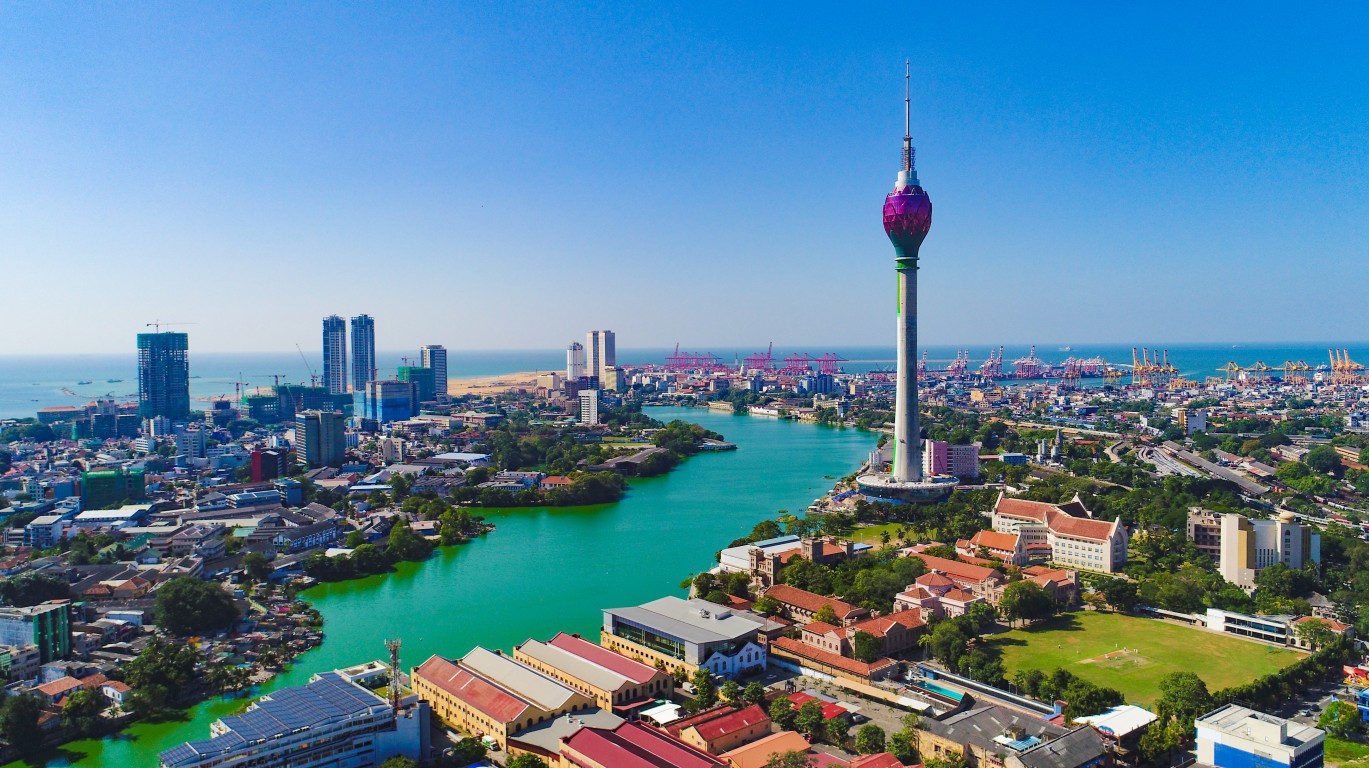Special Report
Countries Where Climate Change Is Leading to the Worst Sleep Loss

Published:
Last Updated:

One of the impacts of global warming is that rising temperatures at night are reducing sleep globally. Moreover, temperatures are rising at night at a faster rate than during the day. This may seem counterintuitive, but the reason is, again, related to global warming.
Temperatures are rising faster at night because of increasing cloud coverage, caused by more water in the atmosphere. The clouds, which absorb heat during the day, re-emit it back down to the surface at night. While this is not an observable phenomenon everywhere in the world, in places that are receiving more of this cloud coverage, nights are getting warmer faster and more frequently than days.
And this means more restlessness and discomfort during a time when, according to SleepFoundation.org, the typical healthy adult requires seven to nine hours of restful sleep for the body to adequately fortify itself. (See also the worst cities to live as climate change gets worse.)
According to a recent study that used sleep-tracking wristbands on a sample of 47,000 people in 68 countries totaling 7 million nights, the average global adult is losing 44 hours of sleep per year to hot weather, or 11 nights with fewer than seven hours of sleep. This average is projected to rise by the year 2099 by as much as 22 to 24 additional hours of heat-related sleeplessness in sizzling countries like Saudi Arabia and the United Arabi Emirates.
To identify the countries where climate change is leading the worst sleep loss, 24/7 Wall St. reviewed estimated sleep loss associated with rising temperatures from the paper Rising Temperatures Erode Human Sleep Globally published in One Earth. Sleep loss is presented as average hours of sleep loss by the year 2099 from rising temperatures. GDP per capita and total population figures come from the World Bank World Development Indicators for the year 2020. Average annual temperature is current as of February 2022.
Arabian Gulf countries are at the top of the 25 countries identified in the study that will experience the largest increases in hot weather-related sleep discomfort.
Average annual temperatures in the 25 countries on the list range from 52 degrees Fahrenheit in Serbia to nearly 82 degrees in the UAE and Singapore. But these averages can be misleading. Peak summer temperatures can be blisteringly higher with overnight temperatures above 90 degrees. Heat-related sleep disruption can cluster around periods that can last for weeks at a time every year. (These are American cities with the hottest summer.)
Poverty can add to discomfort in hot weather. India, which ranks fourth on the list, has by far the largest number of people suffering from dangerous heat waves who lack access to air conditioners or other methods of getting restful sleep in the summer.
Here are the countries where global warming will cause the most sleep loss.

25. Serbia
> Annual sleep loss due to climate change:12.8 hrs per person
> Average annual temperature: 52.3 degrees Fahrenheit
> GDP per capita: $18,255
> Population: 6,899,126
[in-text-ad]

24. Cyprus
> Annual sleep loss due to climate change:13.4 hrs per person
> Average annual temperature: 67.3 degrees Fahrenheit
> GDP per capita: $39,008
> Population: 1,207,361

23. Greece
> Annual sleep loss due to climate change:13.5 hrs per person
> Average annual temperature: 57.6 degrees Fahrenheit
> GDP per capita: $27,073
> Population: 10,700,556

22. Singapore
> Annual sleep loss due to climate change:14.8 hrs per person
> Average annual temperature: 81.7 degrees Fahrenheit
> GDP per capita: $94,506
> Population: 5,685,807
[in-text-ad-2]

21. South Africa
> Annual sleep loss due to climate change:14.9 hrs per person
> Average annual temperature: 64.9 degrees Fahrenheit
> GDP per capita: $12,666
> Population: 59,308,690

19. Sri Lanka
> Annual sleep loss due to climate change:15.0 hrs per person
> Average annual temperature: 81.1 degrees Fahrenheit
> GDP per capita: $12,540
> Population: 21,919,000
[in-text-ad]

19. Indonesia
> Annual sleep loss due to climate change:15.0 hrs per person
> Average annual temperature: 79.1 degrees Fahrenheit
> GDP per capita: $11,446
> Population: 273,523,621

18. Philippines
> Annual sleep loss due to climate change:15.1 hrs per person
> Average annual temperature: 78.5 degrees Fahrenheit
> GDP per capita: $7,958
> Population: 109,581,085

16. Costa Rica
> Annual sleep loss due to climate change:15.2 hrs per person
> Average annual temperature: 76.7 degrees Fahrenheit
> GDP per capita: $19,937
> Population: 5,094,114
[in-text-ad-2]

16. Dominican Republic
> Annual sleep loss due to climate change:15.2 hrs per person
> Average annual temperature: 75.5 degrees Fahrenheit
> GDP per capita: $17,003
> Population: 10,847,904

14. Malaysia
> Annual sleep loss due to climate change:15.4 hrs per person
> Average annual temperature: 78.4 degrees Fahrenheit
> GDP per capita: $26,472
> Population: 32,365,998
[in-text-ad]

14. Mexico
> Annual sleep loss due to climate change:15.4 hrs per person
> Average annual temperature: 70.4 degrees Fahrenheit
> GDP per capita: $17,878
> Population: 128,932,753

13. Malta
> Annual sleep loss due to climate change:15.5 hrs per person
> Average annual temperature: 67.3 degrees Fahrenheit
> GDP per capita: $40,697
> Population: 515,332

12. Guam
> Annual sleep loss due to climate change:15.8 hrs per person
> Average annual temperature: 81.7 degrees Fahrenheit
> GDP per capita: $34,624
> Population: 168,783
[in-text-ad-2]

10. Iran
> Annual sleep loss due to climate change:16.2 hrs per person
> Average annual temperature: 64.1 degrees Fahrenheit
> GDP per capita: $14,971
> Population: 83,992,953

10. Australia
> Annual sleep loss due to climate change:16.2 hrs per person
> Average annual temperature: 71.5 degrees Fahrenheit
> GDP per capita: $48,679
> Population: 25,693,267
[in-text-ad]

8. Morocco
> Annual sleep loss due to climate change:16.7 hrs per person
> Average annual temperature: 64.5 degrees Fahrenheit
> GDP per capita: $6,986
> Population: 36,910,558

8. Viet Nam
> Annual sleep loss due to climate change:16.7 hrs per person
> Average annual temperature: 76.3 degrees Fahrenheit
> GDP per capita: $10,338
> Population: 97,338,583

7. Thailand
> Annual sleep loss due to climate change:17.2 hrs per person
> Average annual temperature: 80.2 degrees Fahrenheit
> GDP per capita: $17,253
> Population: 69,799,978
[in-text-ad-2]

6. Jordan
> Annual sleep loss due to climate change:17.4 hrs per person
> Average annual temperature: 67.0 degrees Fahrenheit
> GDP per capita: $9,817
> Population: 10,203,140

5. Israel
> Annual sleep loss due to climate change:18.1 hrs per person
> Average annual temperature: 68.9 degrees Fahrenheit
> GDP per capita: $39,056
> Population: 9,215,100
[in-text-ad]

4. India
> Annual sleep loss due to climate change:18.4 hrs per person
> Average annual temperature: 76.4 degrees Fahrenheit
> GDP per capita: $6,187
> Population: 1,380,004,385

3. Colombia
> Annual sleep loss due to climate change:18.5 hrs per person
> Average annual temperature: 76.6 degrees Fahrenheit
> GDP per capita: $13,400
> Population: 50,882,884

2. United Arab Emirates
> Annual sleep loss due to climate change:22.6 hrs per person
> Average annual temperature: 81.7 degrees Fahrenheit
> GDP per capita: $63,299
> Population: 9,890,400
[in-text-ad-2]

1. Saudi Arabia
> Annual sleep loss due to climate change:23.5 hrs per person
> Average annual temperature: 77.8 degrees Fahrenheit
> GDP per capita: $44,349
> Population: 34,813,867
The last few years made people forget how much banks and CD’s can pay. Meanwhile, interest rates have spiked and many can afford to pay you much more, but most are keeping yields low and hoping you won’t notice.
But there is good news. To win qualified customers, some accounts are paying almost 10x the national average! That’s an incredible way to keep your money safe and earn more at the same time. Our top pick for high yield savings accounts includes other benefits as well. You can earn up to 3.80% with a Checking & Savings Account today Sign up and get up to $300 with direct deposit. No account fees. FDIC Insured.
Click here to see how much more you could be earning on your savings today. It takes just a few minutes to open an account to make your money work for you.
Thank you for reading! Have some feedback for us?
Contact the 24/7 Wall St. editorial team.